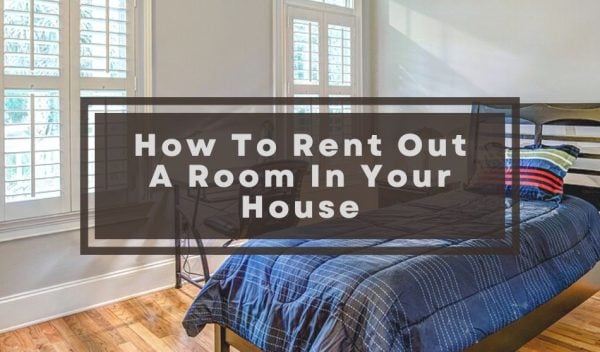
If you have a spare room in your home, you may be able to rent it out and earn some additional income. Renting out a room can also be a great way to test the waters as a new landlord. While renting out a room can be a nice way to earn some extra cash, it’s important to approach the process thoughtfully to ensure that it’s a good fit for both you and your potential tenant. Here are eight steps you can take so you can turn your unused space into a profitable asset.
Strategies for Renting Out A Spare Room
By following these steps, you can successfully find a tenant who is a good fit for your home and ensure that the experience is a positive one for everyone involved.
Determine If You Are Allowed To Rent Out A Room
Before you start advertising your room for rent, it’s important to check if you’re legally allowed to do so. A good place to start is by reviewing the landlord-tenant laws specific to your state. Since each location has its own regulations, familiarize yourself with all aspects of these laws to ensure compliance. Keep in mind that if you live in a condominium or are part of a homeowner’s association, there may be bylaws or other agreements that prohibit renters.
Once you’ve verified the legal requirements, review which city ordinances are applicable to your area. Certain regulations may limit your ability to live comfortably in your own home. After you’ve sorted out those details, you can look for suitable tenants. Remember though, conducting background checks and drafting a comprehensive contract is critical. Knowing how to deny or qualify tenants can also help prepare you for the tenant review process.
Learn more: Should You Rent Out the Spare Room in Your House?
Make Sure The Room Is Tenant Ready
As a landlord, it’s your responsibility to provide a livable dwelling for your tenant and comply with what is commonly known as the Implied Warranty of Habitability. This warranty, which is implied by law in all residential leases, ensures that you maintain a habitable living space throughout the lease or rental agreement.
Learn more: What is the Implied Warranty of Habitability for Rentals?
Before renting out a room in your home, determine whether or not you have the budget to cover any repairs. For instance, if your tenant reports a leaking toilet, are you capable of fixing it yourself or will you need to hire outside help? If you must hire someone, it’s important to have adequate funds for the expenses.
Beyond ensuring you have the financial means to address any maintenance-related issues, you’ll want to make sure it’s clean, comfortable, and ready prior to a tenant moving in. Do the walls need to be repainted? Do the floors need updating, or do you need to add furniture? You’ll also want to make sure the room has adequate storage space, lighting, and temperature control.
Set The Right Rental Price
When you rent out your spare room, be careful not to charge too much or too little. Setting the right price can make the difference between filling the room and dealing with a vacant one. While overpricing could make it difficult to rent out the bedroom, underpricing may lead to a loss of profit or attract undesirable tenants.
To determine an appropriate rental rate, consider the average income of prospective tenants in your rental market area. Targeting prospective tenants with similar earnings will help you rent out your extra room faster and ensure that the renter has the money to make their monthly payments.
To figure out what the average rental rates are for your area, see what other homeowners are charging and ask fellow landlords for their insights. Alternatively, you can use online resources to help estimate average area rates or check local forums and websites. You can also use a rental calculator to help determine what price will be the most beneficial for your needs while considering the local market.
Reflect On What You Want In An Ideal Tenant
When you rent a room in your house, you’ll be sharing personal space with a new roommate. Making a list of renter criteria can help you narrow down your applicant pool. Here are some suggestions on what criteria to consider when looking for your ideal tenant:
- Ability to afford rent and pay on time
- Good landlord references
- No criminal record
- No evictions
- Are you comfortable with pets?
- Note: If you do plan on allowing your tenant to have pets, and you have a pet as well, take into account how your animal may react with another pet in the same space.
- Do you want a smoker or a non-smoker?
- Ask yourself if you have a tenant age preference. For example, think about if you want a college student, a retiree, etc.
Pro-tip: When you come up with your list of criteria, make sure you’re in line with Fair Housing Laws.
Advertise Your Room For Rent
Once you have a good idea about the preferred type of renter you want, you’ll be ready to post an ad. Since you are renting just a room and not a full apartment or home, you can use a more targeted marketing approach rather than casting a wide net. Keep in mind though, that potential tenants may not necessarily look in conventional places for your ad. It’s also helpful to spread the word through friends and family, as networking often yields positive results.
You may want to list your ad on:
- Rental websites
- Social media
- Local classifieds
When you draft it, be sure to include information about the size of the room, the amenities you offer, and the rental price.
Screen Potential Tenants
When you start receiving inquiries about your room, it’s crucial to screen potential tenants to ensure that they are a good fit for your home. Besides running a background check, request references, and conduct interviews.
Don’t solely rely on your instincts when selecting a tenant, as choosing the wrong person can have significant long-term consequences and could lead to legal trouble. Ideally, aim for a renter who has a strong financial background and a clean criminal and eviction history. Someone who does, will likely pay rent on time and respect your property.
Create A Rental Agreement
Having a clear rental agreement is critical, as it can protect you if a landlord-tenant dispute ever comes up. If you are a first-time landlord, consider consulting with an attorney to make sure your agreement is legally sound.
When drafting your rental agreement, there are several terms and considerations to keep in mind.
Security deposits
A security deposit is used to reimburse damages or other revenue losses such as non-payment of rent. State laws determine the maximum amount you can charge for a security deposit, so be sure to do your research before setting a price.
Wear and tear
Normal wear and tear refers to the expected depreciation that results from a tenant living in a property, and it’s important to distinguish between expected deterioration and tenant abuse or neglect.
Rent payment
Indicate how and when rent must be paid and be clear about acceptable payment methods.
Late rent
Your lease should specify what happens if rent is paid late, including late fees and eviction processes.
Pet Policy
Be upfront about your pet policy, and specify pet deposits and fees if applicable.
Utilities
Determine how to split the costs of utilities and include this information in your lease.
Access to common living spaces
Specify the tenant’s access to common areas in the property, including any shared amenities.
Set Expectations
Clearly communicate your expectations for your tenant’s behavior, particularly concerning matters like noise, overnight guests, pets, vacations, smoking, and household chores. By providing a written set of rules, you can eliminate any confusion or gray areas. Make sure to provide your tenant with a copy of these rules so they can refer to them as needed.
The Bottom Line
By renting out a room in your house, not only can you potentially cover a portion of your mortgage, but you can alleviate some financial strain too. However, before you take the big step, take the time to choose the right tenant, conduct a thorough screening process, and take all other necessary precautions to ensure you make the right decision and are conducting business in a fair and legal way.






